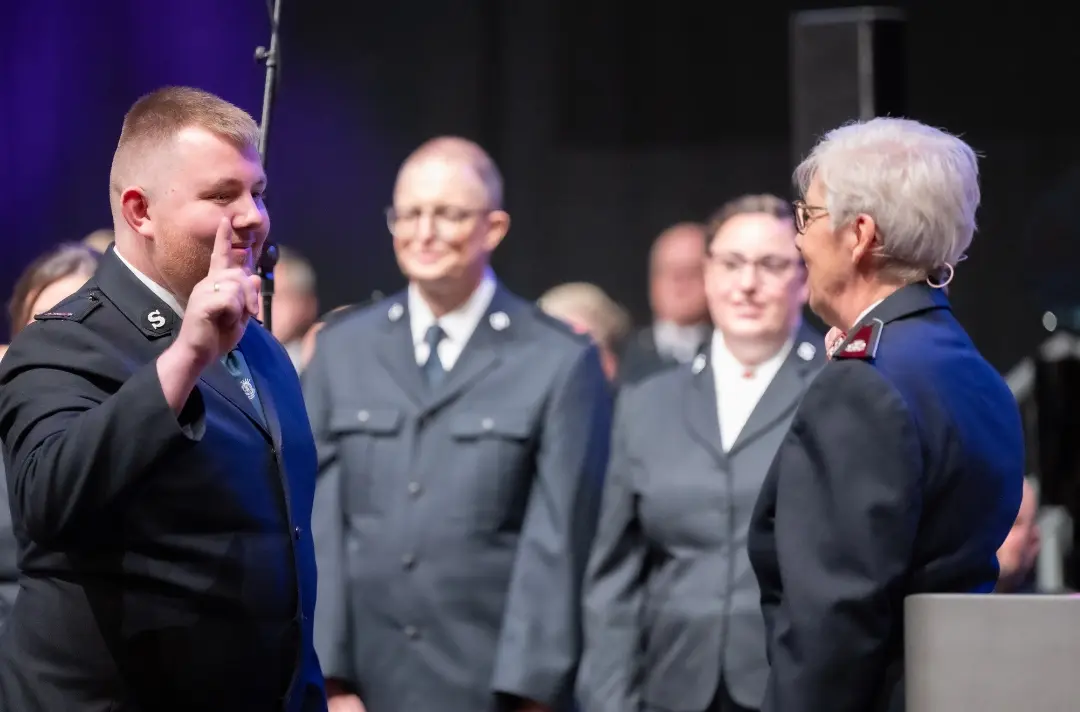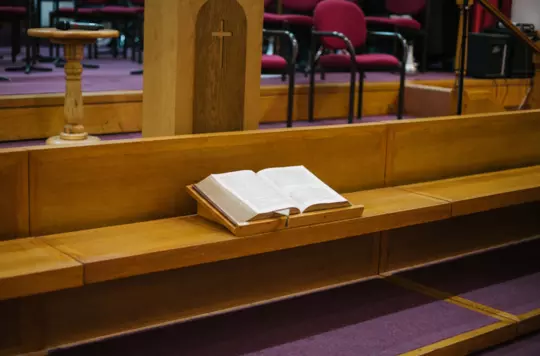12 July 2025
Being ordained and commissioned: What’s the difference?

Integrative Training Officer Major Wendy Stanbury (William Booth College) talks to Salvationist about the place of ordination at Commissioning.
What’s the difference between ordination and commissioning?
Ordination means being set apart for the purposes of God. It's used in The Salvation Army in relation to officership. While we serve under the God-given spiritual authority of The Salvation Army’s leaders, we recognise that we are ordained by God. Commissioning is the sending out of an officer. That’s what The Salvation Army does: it appoints and sends. God does the ordaining; The Salvation Army does the commissioning.
When was ordination formally introduced into Commissioning?
Ordination wasn’t part of the Commissioning ceremony for a long time, but it’s been there longer than you think. It was actually introduced in 1978.
Initially the impetus came from the USA. General Arnold Brown introduced it and then General Eva Burrows redefined it and sent out an additional statement in a letter to international leaders to make sure people understood why we’re using it.
I think people see it as a new thing because the wording has changed slightly over time. At one point in the UK and Ireland, there were three possible wordings that could be used in an ordination and commissioning ceremony! A few years ago, Orders and Regulations set out one internationally recognised statement.
Why did The Salvation Army start using the word ‘ordination’?
Ordination is understood in the wider Church context as the recognition and appointing of someone to ministry. So it gives us parity with other ministers in ecumenical settings. The concept of ordination means there’s a shared understanding of the role of the officer across denominations.
Are territorial envoys and employed spiritual leaders ordained?
While territorial envoys and employed spiritual leaders are not ordained or commissioned, they usually take part in an installation ceremony at the place where they will serve. There is ongoing work to further outline the nuances between the different types of leadership.
So is there a difference between Commissioning in The Salvation Army and ordination in other denominations?
In other denominations, the laying on of hands can be a physical demonstration of the invoking of the Holy Spirit upon a person. In a Commissioning ceremony, the territorial leaders don’t lay hands on the person they’re ordaining. That’s because we believe spiritual authority for servant leadership is something that is imparted spiritually by God, not physically through another person.
Does ordination confer a higher status on officers?
Not at all. It’s not about status, it’s about function. The Salvation Army is a Protestant movement, so we believe in the priesthood of all believers. We’re all equal. We all have a vocation. We all have a calling. But we recognise that we’re also called to specific functions. Ordination is simply the setting apart for a particular function in relation to the ministry of the gospel.
The territorial leaders also have a very particular function as the ones who have been delegated the responsibility by The Salvation Army to lead the ceremony. As officers, we come under their leadership and authority, all within a framework of the priesthood of all believers.
Equally, we need to remember that, as a priesthood of all believers, the witness of the people is really important. Those attending – in person or online – aren’t just an audience: we’re all part of the ordination and commissioning. As the body of Christ, through our presence we’re saying that we concur with the function that is being given to these new officers.
I think that’s quite a special thing, and it helps people to realise that attending Commissioning isn’t about being a spectator: we’re all sharing in the ceremony.
Discover more

Integrative Training Officer Major Wendy Stanbury (William Booth College) talks to Salvationist about the sacred moment when cadets sign the Officer’s Covenant.


